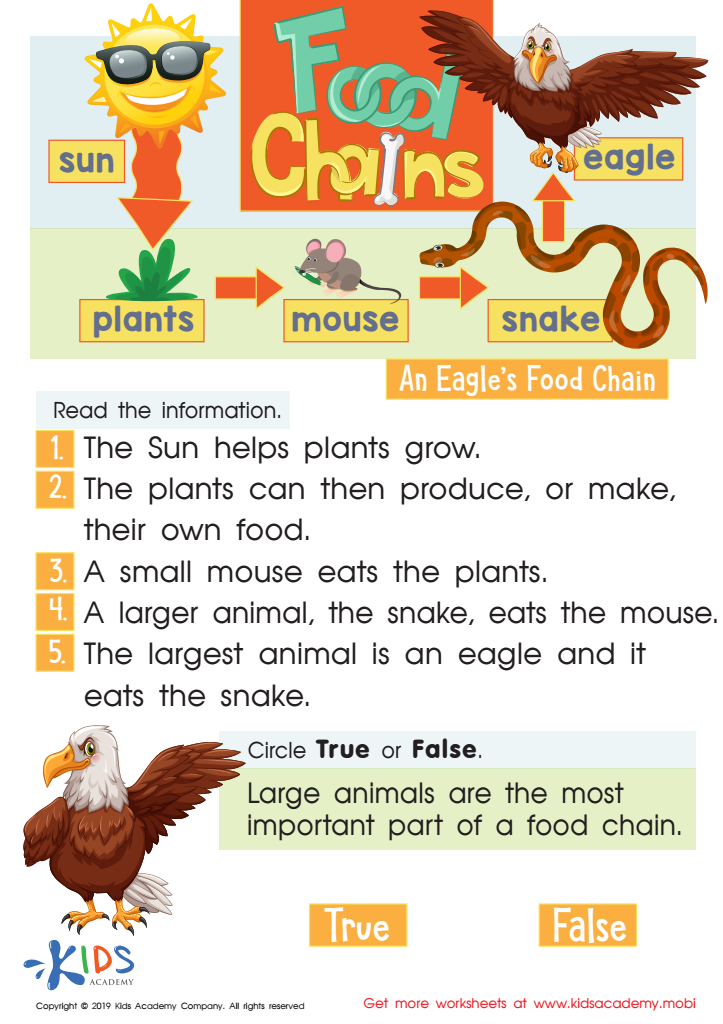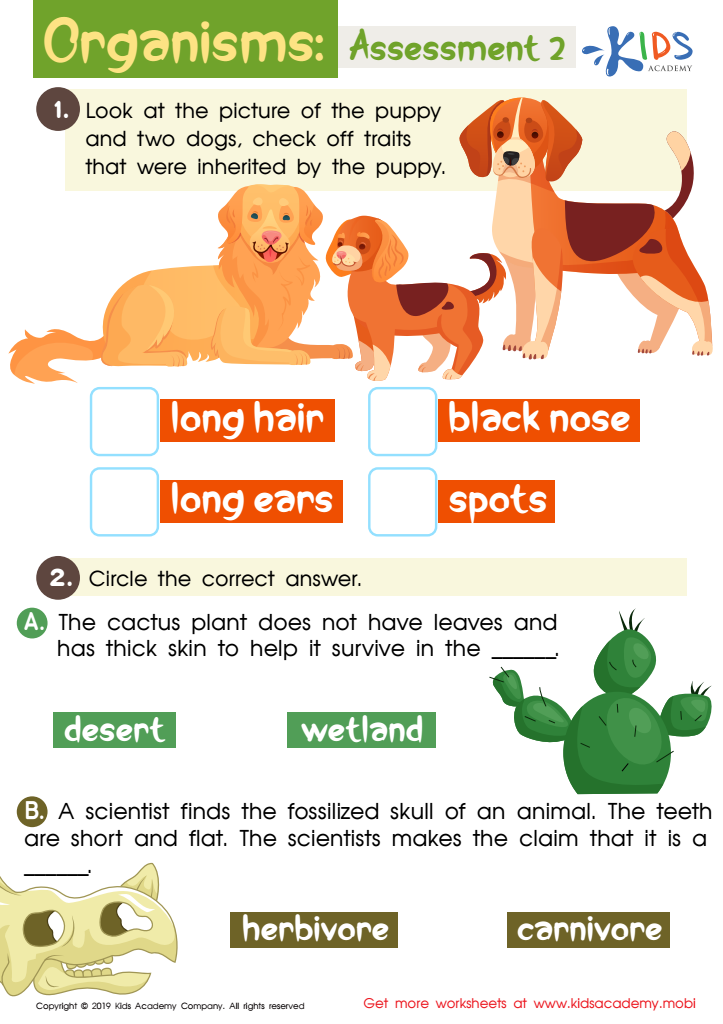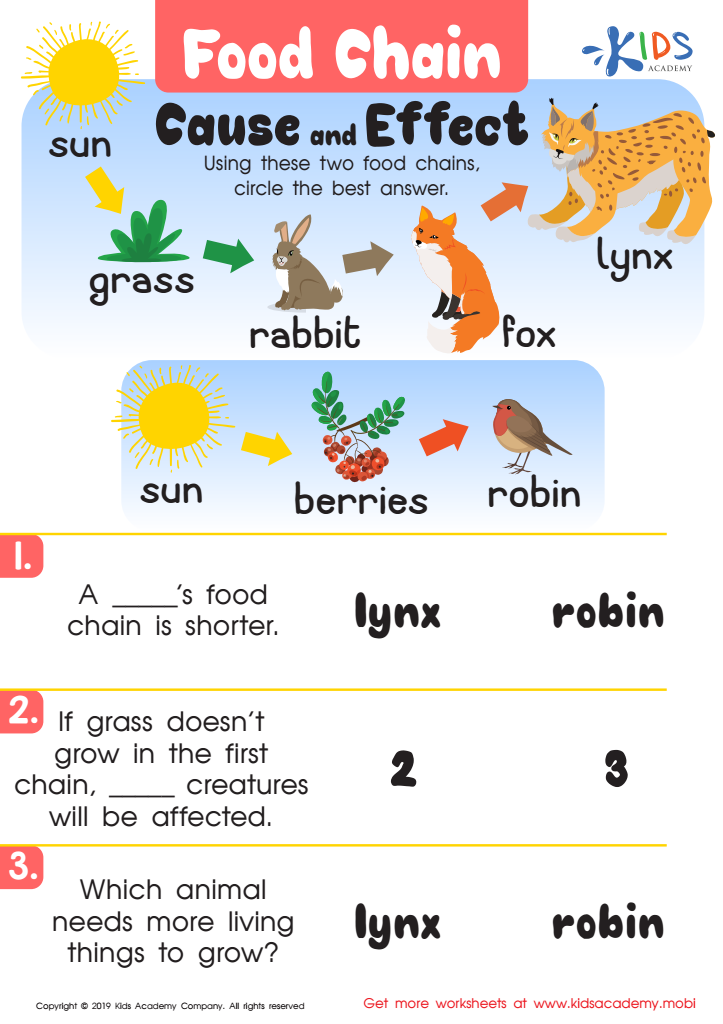Understanding food chains Science Worksheets for Ages 5-9
3 filtered results
-
From - To
Unlock the marvels of nature for young minds with our "Understanding Food Chains Science Worksheets for Ages 5-9." These engaging, educational worksheets introduce kids to the concept of food chains, helping them grasp how energy flows from one living thing to another. Through colorful illustrations, fun activities, and simple explanations, children explore the roles of producers, consumers, and decomposers. Perfect for classroom settings or home learning, our worksheets encourage curiosity about the environment while developing critical thinking and science skills. Empower your child’s learning journey and deepen their understanding of the natural world today!


Food Chains Worksheet


Organisms: Assessment 2 Worksheet


Food Chain Cause Worksheet
Understanding food chains is crucial for young children because it lays the foundation for their comprehension of more complex ecological concepts as they grow. For parents and teachers, introducing this topic to children aged 5-9 can foster a sense of curiosity and respect for nature. When children learn about food chains, they grasp the idea that all living things are interdependent, which is a crucial ecological principle. It helps them understand that plants, herbivores, carnivores, and decomposers all play essential roles in maintaining balance in an ecosystem.
Moreover, understanding food chains can develop critical thinking skills. Children start to ask questions about how animals get their food, why certain animals only eat plants or other animals, and what happens when parts of the food chain are disrupted. This kind of questioning encourages scientific thinking and problem-solving.
Knowing about food chains also builds a sense of environmental stewardship. Children who understand the delicate balance of ecosystems are more likely to care about conservation and protecting natural habitats. Early lessons in food chains can therefore foster a lifelong appreciation for the environment, making children more mindful about wildlife conservation and sustainability.
Overall, teaching food chains to children aged 5-9 builds foundational knowledge, critical thinking, and a caring attitude toward the environment, making it an essential part of early education.
 Assign to My Students
Assign to My Students



















